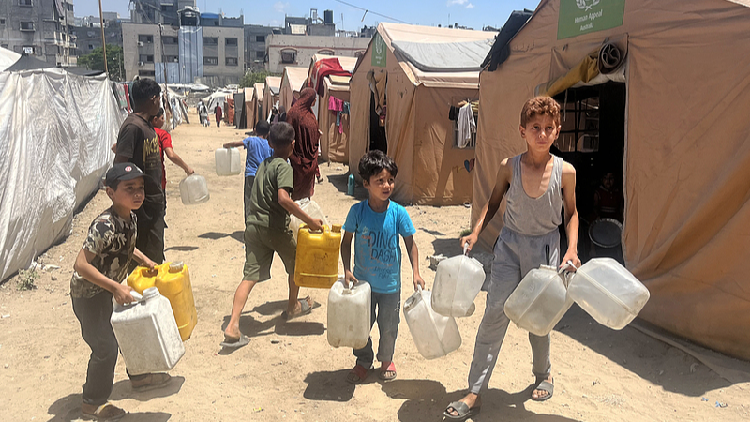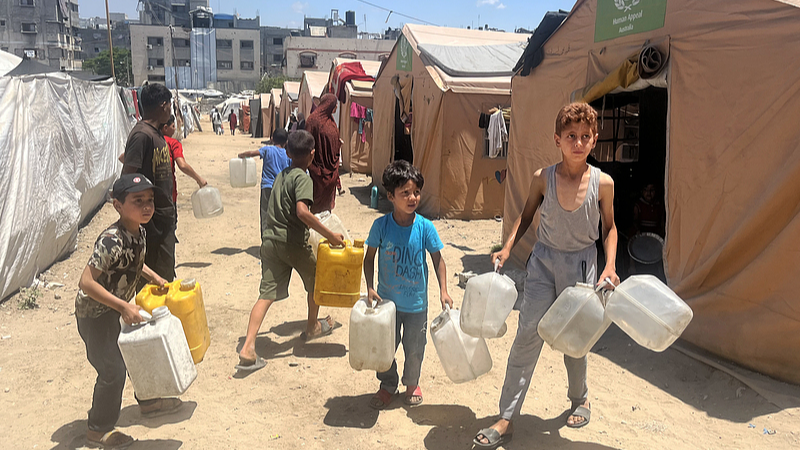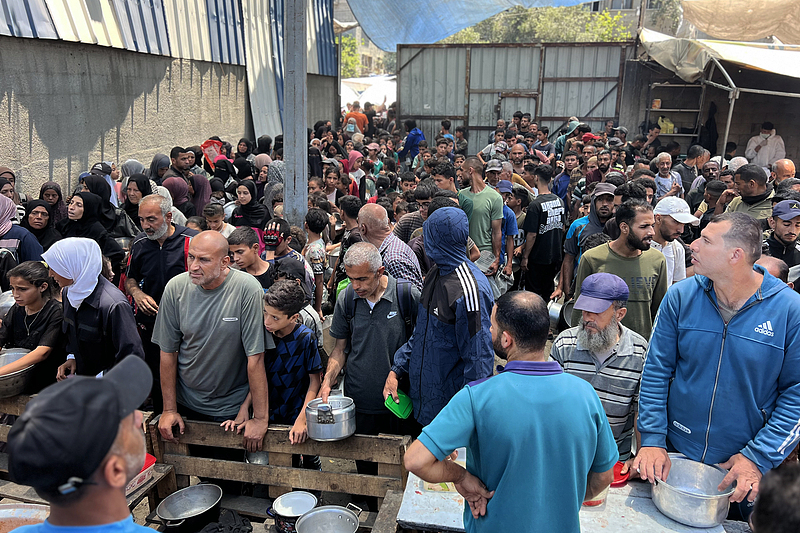UN Reports Rising Casualties in Gaza Amid Ongoing Conflicts and Aid Distribution Challenges
Mass casualties surge in Gaza as hostilities target civilians at food aid sites, says UN OCHA.

Hostilities in Gaza have intensified, leading to mounting casualties among civilians, particularly at sites where food aid is distributed. The United Nations Office for the Coordination of Humanitarian Affairs (OCHA) has warned that the humanitarian situation continues to deteriorate rapidly, with reports of numerous people killed or injured while gathering for essential supplies at militarized distribution points in Rafah and Deir al-Balah.
Expressions of outrage followed a deadly incident on Sunday morning, when at least 31 people lost their lives and dozens were left seriously wounded after Israeli forces allegedly opened fire near an aid distribution center in southern Gaza. As thousands of desperate residents converged to receive food, the violence erupted, leaving many families devastated. Israeli authorities have denied responsibility for the attack. United Nations Secretary-General Antonio Guterres described recent events as "unacceptable," stating, "It is unacceptable that Palestinians are risking their lives for food." He called for an immediate, independent investigation and demanded those responsible be held accountable.
Guterres reiterated Israel's obligations under international humanitarian law, urging authorities to facilitate the unhindered delivery of humanitarian assistance. He emphasized the urgent need for restored access and guaranteed safety for aid workers operating in Gaza, insisting that humanitarian principles must be fully respected amid ongoing conflict.

Health services have also been severely affected. In North Gaza, the Noura Al Kaabi Center for Dialysis was reportedly struck during fighting. According to local health officials, over 40 percent of dialysis patients have died since the conflict escalated in October 2023, largely because medical centers have been destroyed or rendered inaccessible. The ongoing violence and repeated displacement orders continue to burden the population, with the latest directives affecting approximately 100,000 people sheltering in more than 200 sites in Khan Younis and Deir al-Balah alone.
The disruption extends to basic services and education. "The latest displacement order also deprived at least 8,000 students of learning, as tens of functioning temporary learning spaces and a dozen public schools had to suspend their operations," said an OCHA spokesperson. This interruption marks a severe setback for children’s education, further exacerbating trauma and instability for Gaza’s youngest residents.
Efforts by UN agencies and partners to provide nutrition support face enormous obstacles. Last week, nutritional supplements reached about 40,000 children despite ongoing restrictions, but the risk of malnutrition remains high as deliveries struggle to keep up with demand and as security concerns intensify. Reports continue to surface of both desperate individuals and organized groups resorting to looting—primarily of flour from open aid trucks—highlighting the extent of deprivation across the enclave.

Water shortages remain critical. A key pipeline in Deir al-Balah that previously supplied at least 12,000 cubic meters daily is still out of service. Repeated requests by humanitarian teams to conduct repairs have been denied. On Monday alone, five missions aimed at distributing potable water in Jabaliya displacement camps were blocked, aggravating hardship for thousands of displaced families.
Limited aid continues to reach Gaza via the Kerem Shalom border crossing, though severe restrictions hamper both the volume and type of goods allowed in. Over the weekend, more than 100 truckloads of food and medical supplies were delivered on the Palestinian side, bringing the total to slightly over 300 truckloads since the crossing reopened. However, officials stress that this remains just a fraction of what is needed, as border closures and approvals for transport continue to delay relief efforts.
The UN and its humanitarian partners have renewed calls for the complete lifting of all aid restrictions, urging the international community to ensure that the basic needs of Gaza’s civilians are met as the humanitarian crisis deepens. Without immediate action to restore reliable access to food, water, medical care, and educational opportunities, the dire situation faced by Gaza’s population threatens to worsen even further in the days ahead.




